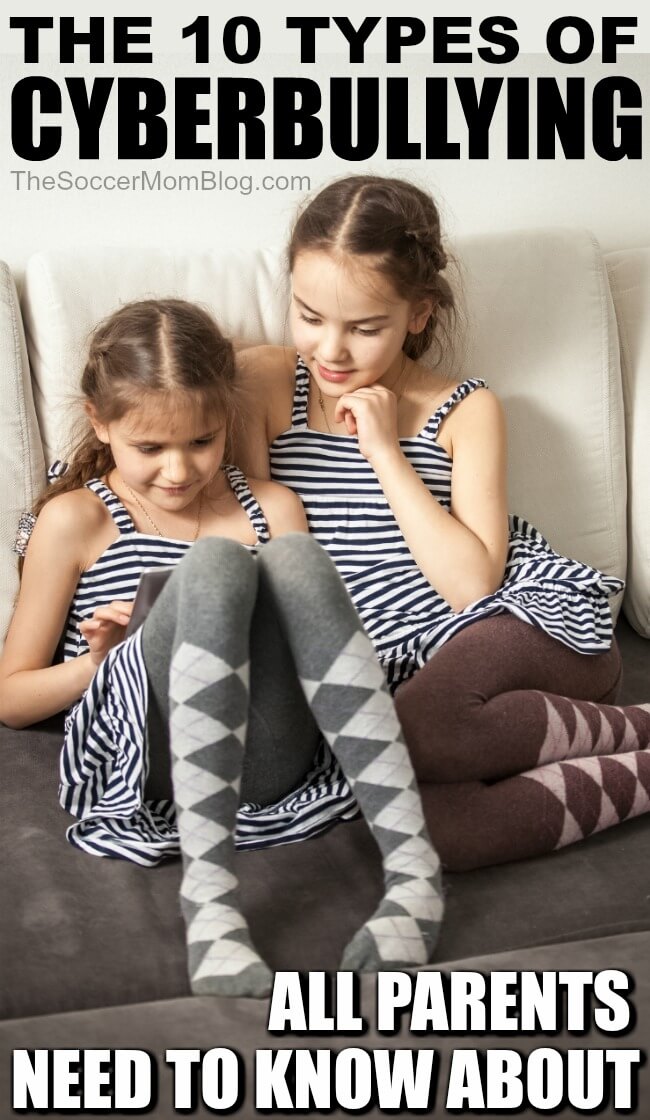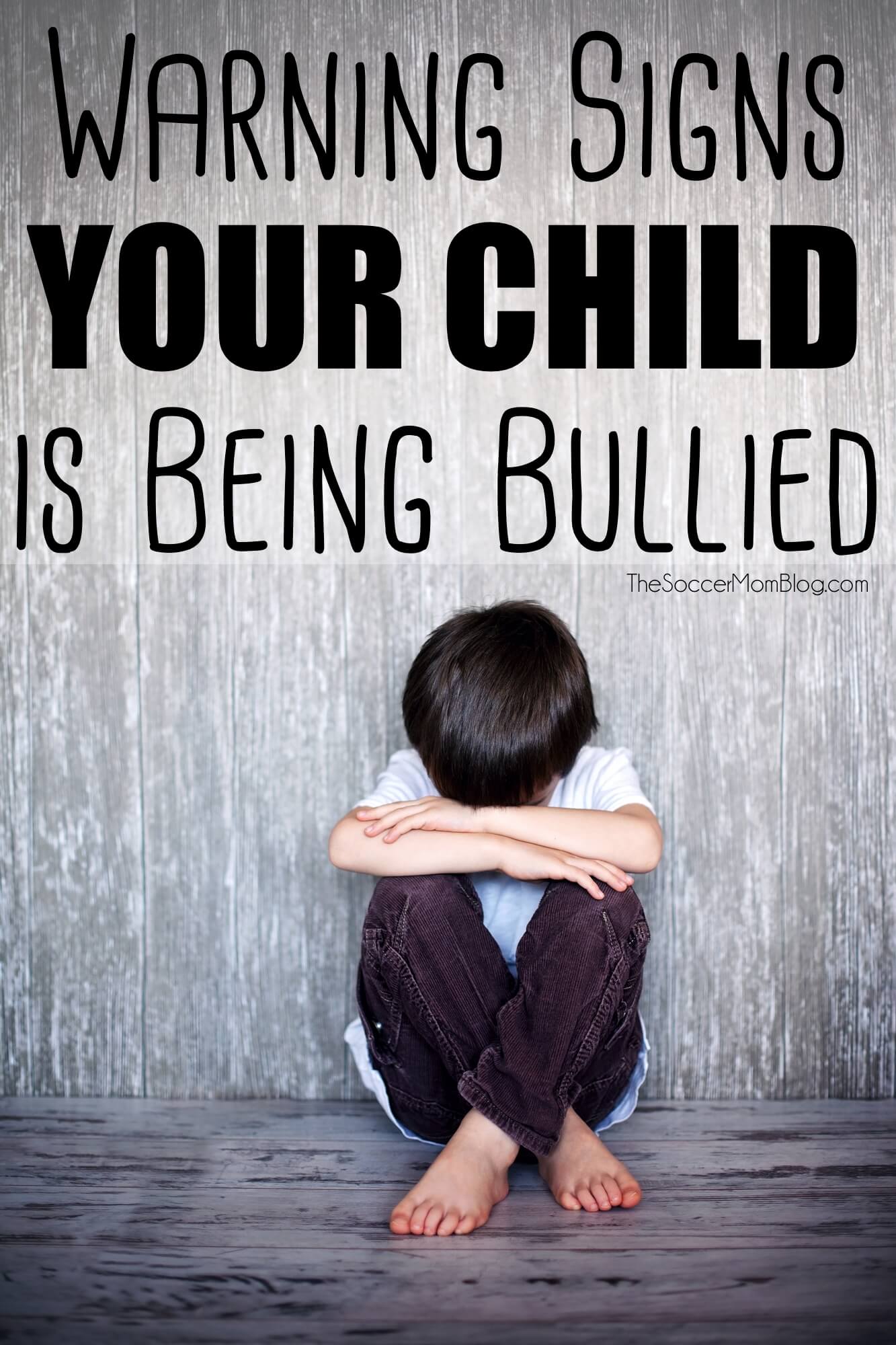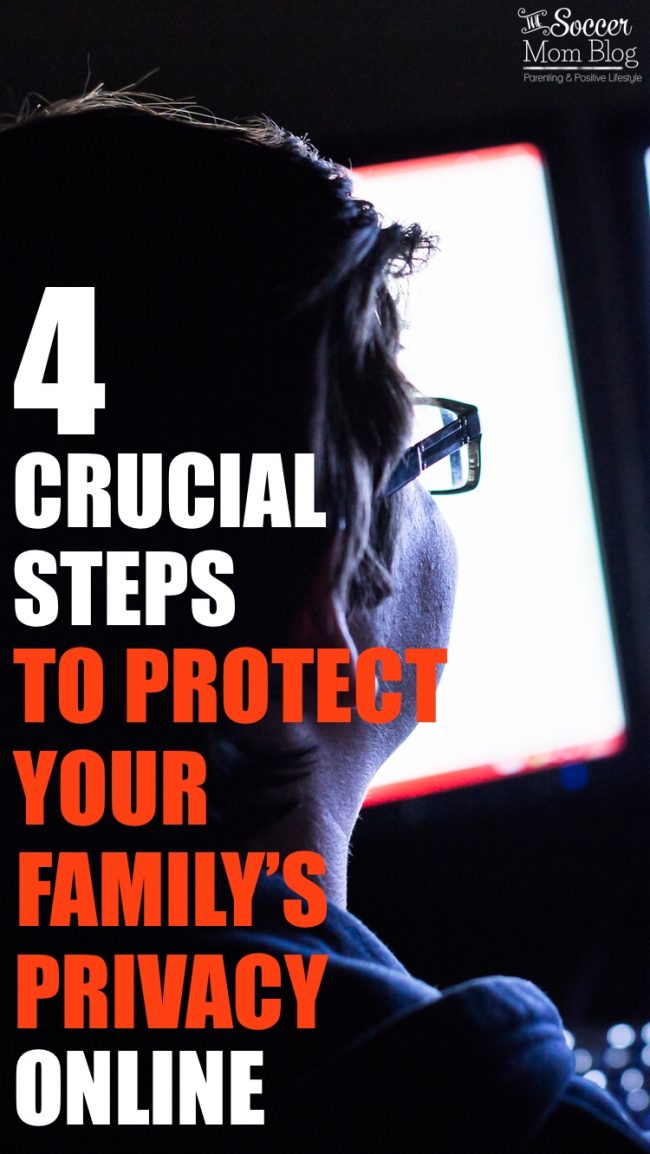Inside: The 10 types of cyberbullying that parents and educators need to know about, as well as steps to prevent them.
October is National Bullying Prevention Month, so I thought it would be the perfect time to gather a group of influential parents in the community to discuss ways to keep our kids safe online.
I’m partnering with Google and the Forward Influence Network to host the event and share what we learn afterwards.
Why Bullying is a Big Deal
More than half of all parents are worried about their child being bullied, and unfortunately there’s a good reason for their concern. At least one fourth of students reported being bullied themselves and a whopping 71% of students witnessed someone else being bullied.
Chances are, your child has experience with bullying at their school or has seen it happen.
Bullying isn’t a new phenomenon, however, what IS new is where it happens. In addition to school, kids today also have to deal with internet bullying, also know as cyberbullying.
10 Types of Cyberbullying Parents Need to Know About
To combat cyberbullying, you first have to know the lingo. The following are the ten most common types of cyberbullying that may affect kids and teens:
- Exclusion — Just like in school, kids can exclude others online. With this particular type of exclusion a group of kids may purposely leave their victim out of chat groups, online clubs, and messages.
- Harassment — Online harassment involves a pattern of sending malicious messages, photos, etc. to another person.
- Cyberstalking — This takes online harassment to the next level, where the attacker tries to frighten, threaten, or stalk their victim.
- Outing — Sharing a person’s private information without their permission and with the intent to embarrass them. This includes secrets, photos, videos, or anything that a person had meant to keep to themselves.
- Impersonation or “Catfishing” — When a person pretends to be someone that they are not for the purpose of fooling or taking advantage of another person. A “catfisher” may be looking for an online relationship, like in the popular television show, or they may be trying to get personal information for other purposes.
- Trolling — Trolling involves posting nasty comments or foul language online to try to get a reaction or start an argument. Trolls may try to incite a general argument, but they may also target a specific person with personal attacks.
- Trickery — Also known as “phishing,” this type of cyberbullying is similar to catfishing in that they goal is to deceive a person into revealing private information.
- Flaming — Online fighting, whether in private messages or public chat rooms.
- Denigration or “Dissing” — Dissing is doing or saying things to hurt another person’s reputation. In this case it is done in an online forum – for example, posting embarrassing photos on a message board.
- Doxxing — Also spelled “doxing,” this type of cyberbullying makes personal or identifying information public, with a malicious intent. This could be anything from publishing sensitive financial information to revealing someone’s home address.
What We Can Do To Prevent Internet Bullying
There are three main ways to prevent cyberbullying:
- The first way we parents can protect our families is by familiarizing ourselves with the types of cyberbullying listed above. Knowledge is power!
- Just as crucial is to create an open line of communication with our kids so we’ll know when a problem arises and can offer the support they need.
- Finally, since cyberbullying always affects more than just one person, it’s critical for communities to work together to prevent and protect all of our children.
Google is one of the leaders in the effort to prevent cyberbullying through their multifaceted program: Be Internet Awesome. This free program provides both parents and educators with tools to teach kids online safety and digital citizenship. That way kids will not only learn to protect themselves from cyberbullying, but also be less likely to become a bully themselves.
To help spread the word about Be Internet Awesome, I’ve invited a group of Houston parents, educators, and influencers to come together and learn more about Google’s new program, as well as share their best tips to help keep our children safe online.
The event will take place tonight at one of my favorite places in town: Pappas Bros. Steakhouse in beautiful Downtown Houston. Our topic of discussion will be how to spread kindness online and prevent online bullying.
Find out what our parents and educators had to say: 4 Things Parents Must Do to Keep Kids Safe Online
In the meantime, be sure to check out Google’s free new program: Be Internet Awesome and play Interland with your kids and put your kindness skills to the test at g.co/KindKingdom
More About Bullying and Online Safety
Warning Signs Your Child is Being Bullied
How to Protect Your Family’s Privacy Online
- No Bake Cherry Cheesecake - April 15, 2024
- Easy Infused Water Recipes - April 13, 2024
- No Bake Lemon Cheesecake - April 12, 2024





Leave a Reply